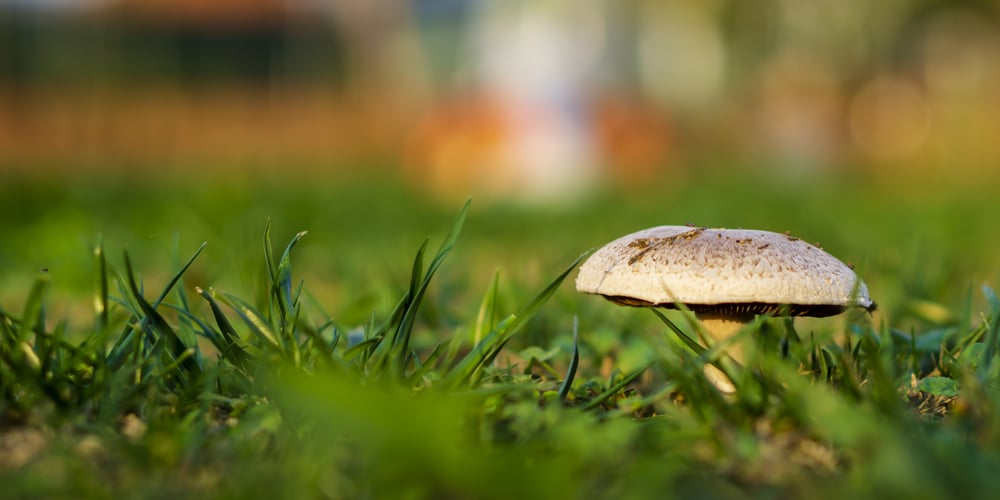Back in school, you probably learned all about the food chain: the terms “producer,” “consumer,” and “decomposer” may sound familiar.
Every type of organism on the planet falls into one of these three categories.
Basically, what the food chain illustrates is that all life on Earth is connected through the flow of energy. Energy comes from nutrients found in food. Producers such as plants make their own food through photosynthesis. Consumers – maybe a cow – come along and ingest that plant to survive, and then another consumer such as a human comes along and eats that cow. The human is surviving on the original energy that came from the plant.
What about the third group, decomposers? Well, decomposers survive by consuming dead organisms, whether that’s plant or animal matter.
Bacteria, fungi, and insects are some of the most important types of decomposers. When they break down this organic matter, they produce nutrients that are important for plants to grow.
This means that, without the existence of fungi, plants couldn’t grow! The energy from the end of the cycle goes back to the beginning (Producer to Consumer, Consumer to Decomposer, Decomposer to Producer).
Decomposers actually prop up the entire system – when it comes to life on earth, fungi are nearly as important as the sun.
So, next time you see a mushroom growing outside, there’s no need to instantly get rid of it. Instead, maybe give it a nod of appreciation!
Is a Mushroom a Producer? Where do mushrooms fit in?
Is a mushroom a producer? Although they’re sometimes confused for a type of plant, mushrooms are actually a type of fungus. This means they’re decomposers, as all fungi are. Mushrooms aren’t producers.
Mushrooms and other fungi are usually “primary decomposers.” This means they are the first line, the organisms that break down organic material most thoroughly.
This is because they’re made up of something called hyphae. Hyphae are long branches that can grow _into_ the decaying organism and decompose it on a deeper level. For instance, while bacteria can’t break down wood, fungi can thanks to their hyphae. Without primary consumers, we’d have dead wood just laying all over the surface of the planet!
Once this first level of decomposition is done, _secondary decomposers_ such as insects help by breaking down the surface.
What we think of as “mushrooms,” by the way, are actually just the tip of the iceberg. The primary components of the organism are the hyphae, known collectively as a mycelium. The little, oddly-shaped things we see (and sometimes add to cuisine, as long as they’re not poisonous) are used to disperse spores – they’re the means through which the mushroom will reproduce. These spores are carried all over the place by the wind, helping create more mushrooms and providing the food cycle with a firm foundation of decomposers.
Should I grow mushrooms in my garden?
That would be a resounding yes!
Mushrooms are a great choice for a garden, and not only because you can use certain types as garnish for food (please make sure they are the correct types and not poisonous!).
As you’ve seen, they’re an essential part of the ecosystem, and especially the plant ecosystem. Growing mushrooms helps plants grow – you’ll get a higher yield from vegetables.
They also help clean up garden debris including wood (saprophytism). A clean garden is important for many reasons, such as keeping away pests, who tend to set up camp under leaves or vines.
One way to grow mushrooms in your garden is by mixing spores with fertilizer. You’ll have a completely natural fertilizer – without any harmful chemicals – that will contribute to the overall health of your plants’ life and death cycle.
Another way to grow them is by using a a mushroom grow kit. What you do here is mix mycelium with mulch, water, and then plant this underneath the garden. You should use about one mushroom grow kit per 50 square feet of your garden.
Often, mushrooms sprout up by themselves, especially after rain. This is a good sign that you have healthy, fertile soil, not a bad sign of “infestation” as many people think.
However, some of them can be poisonous. If you have kids or dogs, you’ll probably want to clear away mushroom spores after it rains – it can be tough to tell which varieties are poisonous and which aren’t if you haven’t planted them yourself.
You’ll still get the benefits of mycelium beneath your garden, even if you remove the surface mushrooms. Your garden is a little representation of the entire ecosystem and, just like any ecosystem, it should have decomposers such as mushrooms! Don’t underestimate the power of these fascinating organisms.
Is a Mushroom a Producer? Final thoughts
Mushrooms aren’t producers, but with a bit of know how are easy to grow. For more information on growing mushrooms, be sure to visit your local garden store.
Related article: Do mushrooms grow in poop?

